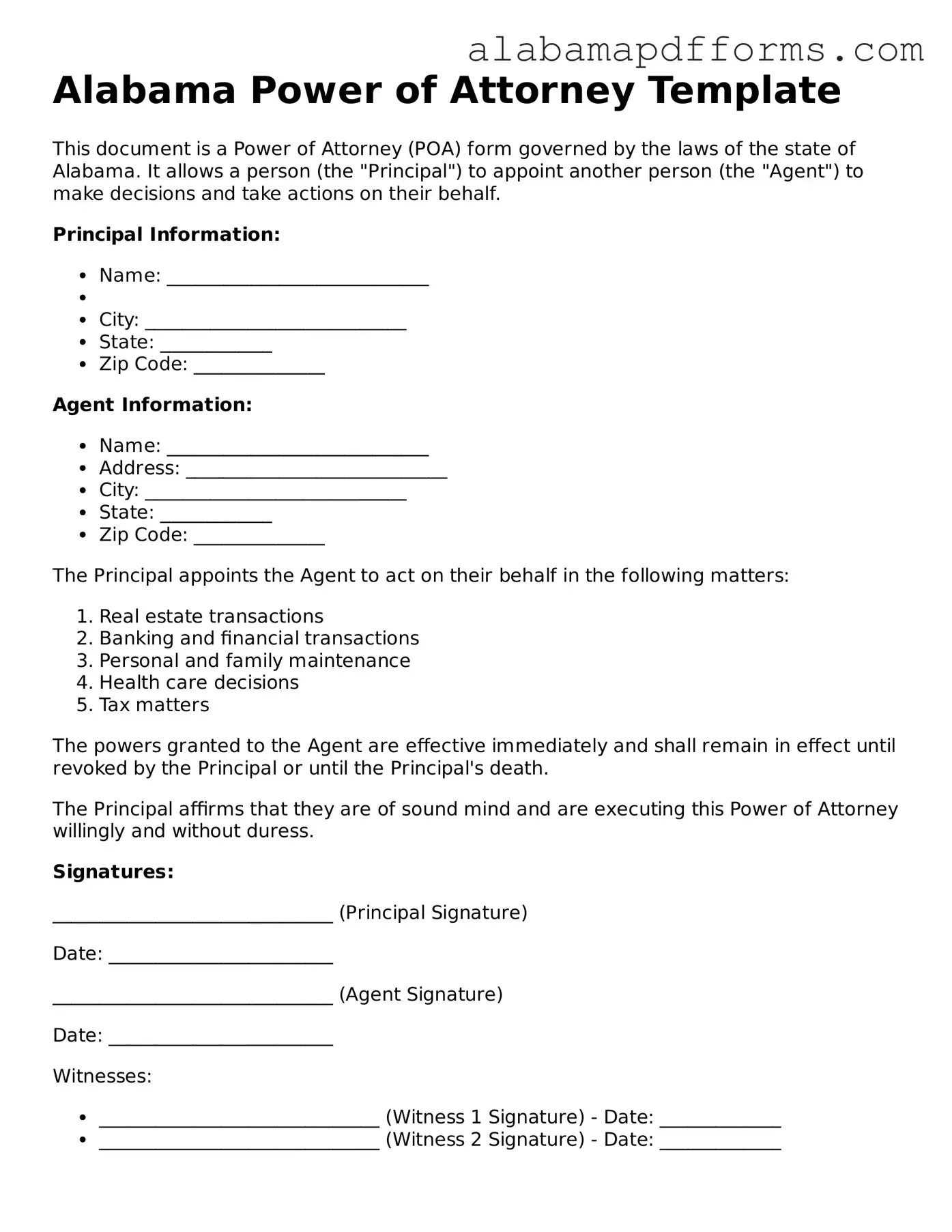Filling out a Power of Attorney (POA) form in Alabama is a critical task that requires careful attention. Many individuals make mistakes that can lead to confusion or even invalidate the document. Understanding these common pitfalls can help ensure that the form serves its intended purpose effectively.
One frequent error is failing to specify the powers granted. A POA can be broad or limited, but if the powers are not clearly outlined, the agent may not have the authority to act as intended. It's essential to detail the specific actions the agent can take on your behalf, whether it’s managing finances, making healthcare decisions, or handling real estate transactions.
Another mistake is not signing the document in the presence of a notary. Alabama law requires that a Power of Attorney be notarized to be valid. Without a notary's signature, the document may not be recognized by banks or other institutions, which can create significant obstacles when the agent attempts to act on behalf of the principal.
Some individuals overlook the importance of choosing the right agent. Selecting someone who is trustworthy and capable is crucial. An agent should have the skills and judgment necessary to make decisions that align with your wishes. Rushing this decision can lead to complications down the line.
Additionally, people often forget to update their POA when their circumstances change. Life events such as marriage, divorce, or the death of an agent can necessitate a revision of the document. Failing to update the POA can result in outdated information that may not reflect your current wishes.
Not discussing the POA with the chosen agent is another common oversight. It’s vital to have a conversation with the person you designate as your agent. They should understand their responsibilities and your expectations. This dialogue can prevent misunderstandings and ensure that the agent is prepared to act when needed.
In some cases, individuals may not provide copies of the POA to relevant parties. Once the document is completed, it should be shared with the agent, financial institutions, and healthcare providers. This ensures that everyone is aware of who has the authority to act on your behalf.
Another mistake is neglecting to include alternate agents. Life is unpredictable, and your first choice may not always be available. Designating one or more alternate agents can provide a backup plan and ensure that your affairs are managed without interruption.
Lastly, people sometimes fail to understand the implications of the POA. It’s important to realize that granting someone power of attorney is a significant decision. The agent will have access to your financial and personal information, so it’s crucial to choose someone you trust completely.
By being aware of these common mistakes, individuals can better navigate the process of completing a Power of Attorney form in Alabama. Taking the time to ensure accuracy and clarity will provide peace of mind and protect your interests in the long run.

